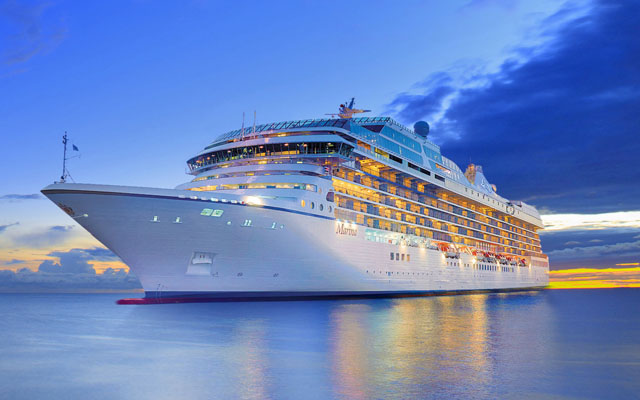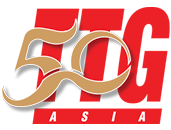Singapore-based proptech startup SensorFlow co-founder and CEO, Sai Ranganathan, stresses the need for hoteliers to embrace smart solutions so as to optimise operational efficiency, cut costs, and rebuild consumer confidence in the post-pandemic travel landscape
The recent upheaval of the hospitality industry due to Covid-19 is well-documented. At the time of writing, the global situation is easing and hotels are beginning to reopen again, but the travel landscape they now face is a very different one.
Pre-coronavirus, my key criteria for booking accommodation would be good service and sustainable practices. Now, I am more vigilant about their cleanliness standards and whether they have taken the appropriate hygiene measures. I am not alone in this sentiment either, which is why large hotel chains have come out to publish their new and improved cleaning playbooks to reassure their guests.

Opinions differ on what is the best way forward for the industry, but most agree that embracing technology should be a key part of a hotel’s re-entry plan. When properly implemented, technology can help hotels operate more efficiently, reduce costs and – most importantly – foster genuine trust among guests. For hotels, the challenge of the new normal will be conveying transparency and providing personalised service, while remaining efficient and productive – and technology will be the key to achieving the perfect balance.
Confidence through cleanliness
With hotels having to shift from ‘cleaning for appearances’ to ‘cleaning for health’, some of the extra weight of these heightened cleaning efforts can be shifted to technology. Maintaining good indoor air quality, for instance, can make a significant difference to health and safety – especially with the coronavirus currently being investigated for possible airborne spread.
The increased concern over air quality has led to a surge in popularity for bipolar ionisation technology, which releases charged atoms that surround and deactivate harmful substances. This technology can be integrated into existing heating, cooling and ventilation (HVAC) systems to provide active, continuous disinfection. It has already proved effective against other coronavirus outbreaks such as SARS and MERS, and emerging studies suggest that this may also prove true for Covid-19.
Using bipolar ionisation provides a number of benefits to hotels. It is a non-intrusive yet sophisticated hygiene technology that augments existing cleanliness procedures by cleaning at the molecular level. It also improves the capture efficiency of the existing HVAC’s air filtration system and reduces the quantity of outside air required to operate such HVAC systems, which in turn lowers energy costs. Hotels in the US have already begun implementing and promoting bipolar ionisation as a desirable amenity, and more are expected to follow suit.
Big data for better productivity
The continued fear of coronavirus transmission cements contactless engagement as a required amenity of hotels in the new normal post-Covid. To deliver and maintain the same seamless experience that guests have come to expect, hotels will have to rely more heavily on data and insights to understand their guests better and craft new, hyper-personalised experiences that minimise but do not devalue human interactions.
The crucial preliminary step is gathering data. Hotels can do this by utilising in-room, Internet of Things (IoT)-enabled wireless sensors to capture valuable information such as occupancy status, guests’ preferred temperature setpoints and room energy consumption, which can then be sent to a consolidated dashboard overseen by the hotel’s operations team that displays a full overview of room conditions in real-time.
With more information on the rooms’ live occupancy status, housekeeping teams can then plan their routes and sanitisation schedules better.
Meanwhile, maintenance teams can monitor HVAC systems for optimal efficiency and perform predictive maintenance before any malfunctions can escalate and jeopardise room comfort. These measures increase the teams’ productivity while reducing guest disruption as well as minimising unnecessary contact with guests.
Besides facilitating staff productivity, a consolidated dashboard of each room’s environmental data also presents a comprehensive picture of the hotel’s condition in real-time and allows management to make timely, informed decisions. Aside from addressing the longstanding issue of suboptimal connectivity between the hotel’s various data sources, quicker decision-making means the hotel can enhance its emergency response and problem resolution capabilities.
Enhancing services to improve the guest experience
The hospitality industry is called the service industry for a reason – the very nature of the hospitality sector is guest-centric. Therefore, to provide the best guest experience, hotels must understand their target market intimately. This can be achieved with artificial intelligence and analytics tools, which can transform the data gathered into more extensive insights about their guests over the long-term.
For instance, in-room sensors track room occupancy data, which can be analysed to provide insights on the most popular time in the morning for guests to leave their rooms, as well as when they are most likely to return at night. Beyond housekeeping schedules, this also allows hotels to plan events and promotions in their other facilities, such as the happy hour at the bar or dining discounts based on the time of day.
This data-driven approach increases the potential take-up rate of these promotions, which can directly increase revenue for the hotel and reduce downtime slumps. Conversely, real-time insights on the peak visiting and usage hours of the restaurants, as well as facilities such as the pool, gym and spa, can help management plan usage policies to prevent overcrowding and maintain a safe, comfortable environment.
Digitalise to survive
We are seeing South-east Asian countries easing their lockdowns and travel restrictions as they flatten their virus infection rate curves. Hotels and travel businesses in this region are slowly reopening and launching attractive promotions to get a head start on their recovery phase.
However, with lingering fears over the coronavirus and global travel still on the downturn, the reality is that guests will only return in force when they are confident of getting an accommodation experience that prioritises both enjoyment and safety.
It is evident that digitalisation – namely via IoT and remote working technologies – are going to be the primary enablers for hotels to implement the new normal of hospitality, like advanced sanitation measures, minimum-contact practices, efficient staff services and hyper-personalised experiences.
Thus, leveraging technology to enhance existing offerings and provide transparency on new safeguards is the natural next step for hotels. This is how they can ensure the wellbeing of guests and employees, maintain quality of service and, most importantly, rebuild confidence in the post-pandemic travel environment.




















